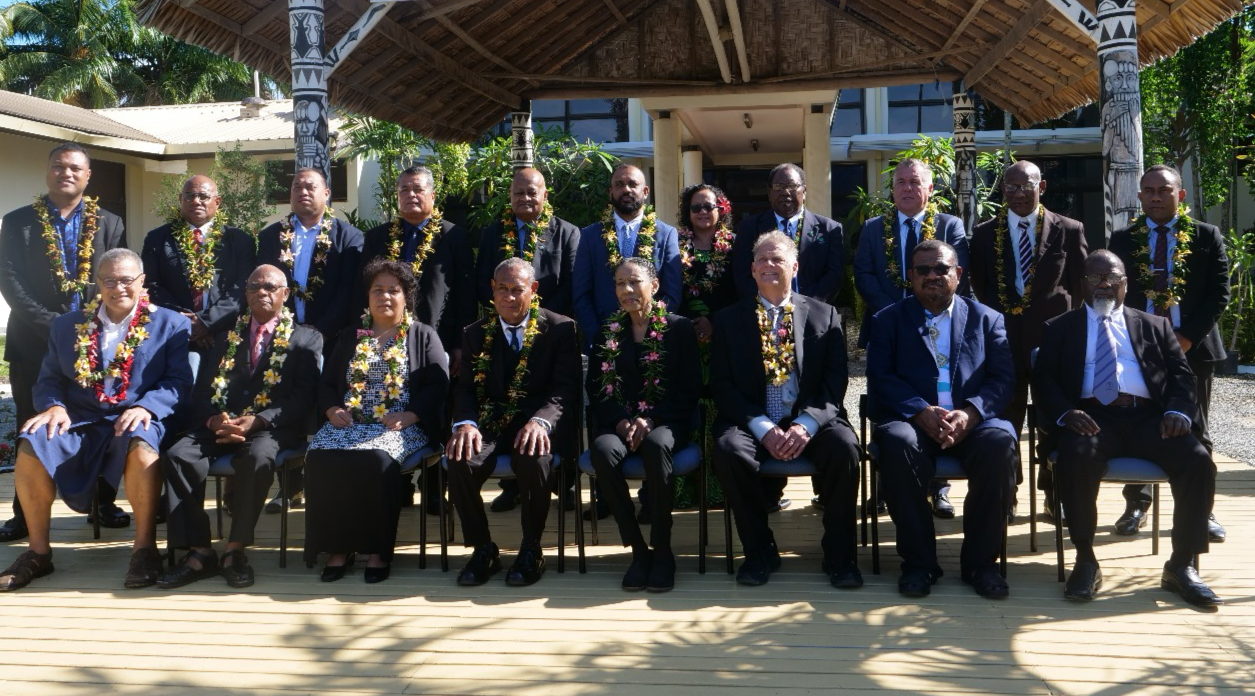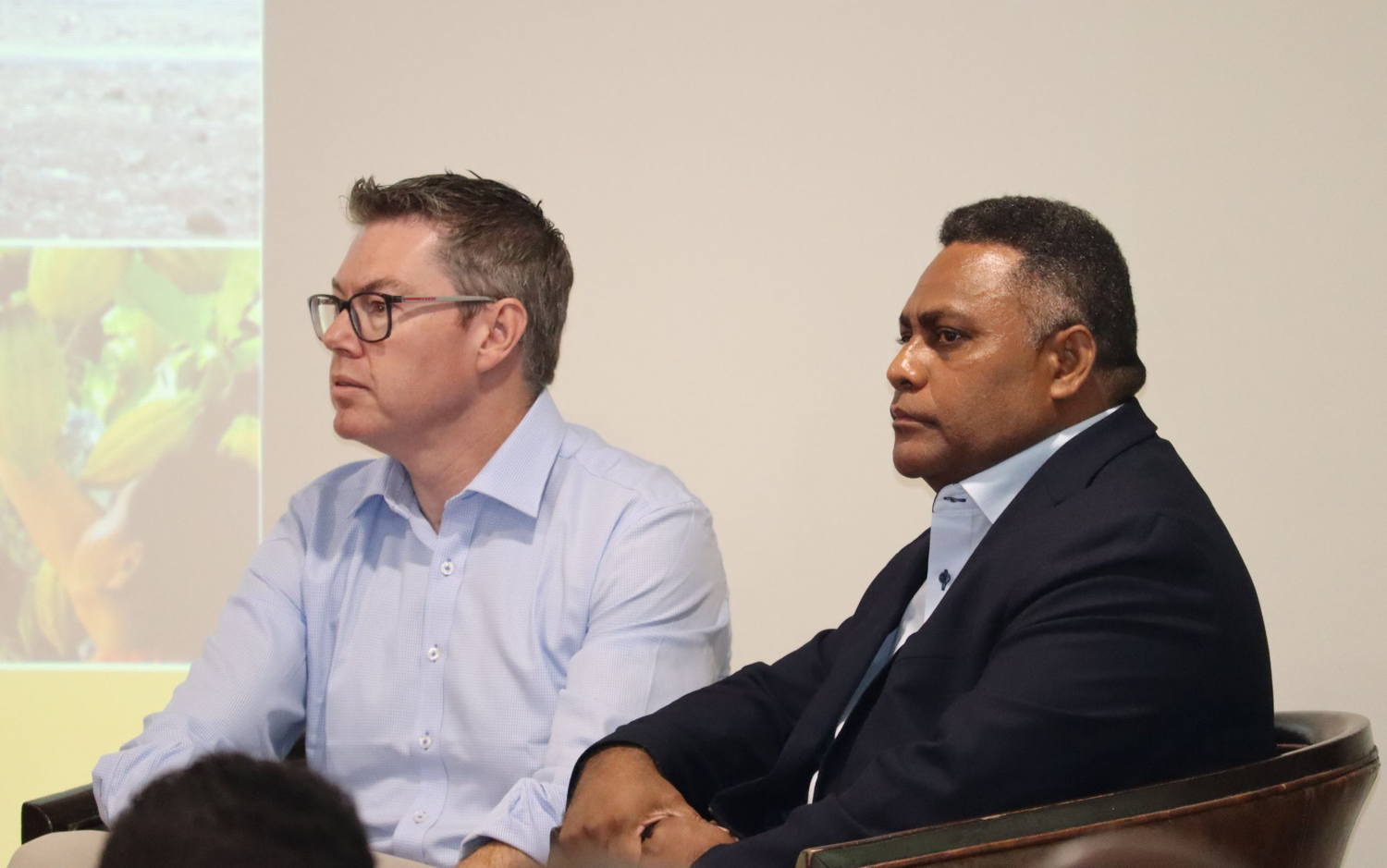The judicial Symposium 2025 got underway on Wednesday at the Pacific Forum Agency Fisheries (FFA) Conference Centre.
It brought together Chiefs Justices from Kiribati, Marshall Islands, Papua New Guinea, Samoa, and Tuvalu, alongside other senior legal experts to discuss recent developments in recent developments in international fisheries law.
The symposium, co-hosted by Foreign Fisheries Agency and the Honourable Chief Justice of Solomon Islands, Sir Albert R. Palmer, CBE, highlights the role of the judiciary in enforcing fisheries laws and ensuring sustainable management of marine resources.
In his welcome remarks, the Director General of FFA Noan Pakop underscored the judiciary’s role in combating Illegal, Unreported, and Unregulated (IUU) fishing, which costs the region an estimated USD333million annually.
‘“Judicial oversight is the key to ensuring fisheries resources remain a source of economic stability for pacific nations,” he stated.
Chief Justice Palmer further emphasized the interconnectedness of the Pacific nations, stating;
“The Pacific Ocean is more than an economic asset- it is our identity. It is our duty as judicial officers to ensure our laws reflect this reality.”
He called on participants to bridge international legal frameworks with national enforcement mechanisms, ensuring that sustainability remains a guiding principle.
Palmer also reflected on the evolution of the fisheries law, noting its deep ties to customary practices, internationals treaties and emerging jurisprudence.
“Many of the rules and principles in this space was not part of the curriculum when most of us entered the legal profession. Continuous learning and judicial learning are essential to remain current,” he remarked.
The symposium features discussions led by Judge Ann-Brown of the International Tribunal for the Law of the Sea (ITLOS) along side fisheries laws specialists Ambassador Donald Mackay, Professor Martin Tsamenyi, and Professor Stuart Kaye.
Palmer highlighted the judiciary’s role in translating international commitment into enforceable national laws, reinforcing consistency in legal interpretation and fisheries governance across the region.
“Judiciaries have, and will most certainly continue to play a pivotal role both in the development and implementation of legislative and institutional regimes for sustainable development,” he stated, referencing earlier discussions on judicial responsibility in environmental law.
Palmer emphasized that the fisheries law has become increasingly complex, influenced by a mix of binding treaties and advisory instruments, such as the 1995 UN Fish Stock Agreement and the 2009 FAO Port State Agreement.
“International Fisheries Law is and evolving body of public international law that incorporates not only conservation principles but also trade, environmental, and resources governance dimensions,” he noted.
He urged judicial officers to remain engaged in ongoing legal interpretation and ensure national laws align with these frameworks.
He underscored the role of and adjudicatory bodies such as such as the International Tribunal Law of the Sea (ITLOS) and the International Court of Justice (ICJ) in shaping legal precedents related to maritime disputes.
“From the Anglo-Norwegian Fisheries Case to the 2015 Advisory opinion submitted by the Sub-Regional Fisheries Commission, these rulings help crystallise state obligations and clarify jurisdiction responsibilities,” Palmer stated, urging Pacific judiciaries to apply these principles.
By ANDRIANAH DELASALET KOLE
Solomon Star, Honiara





